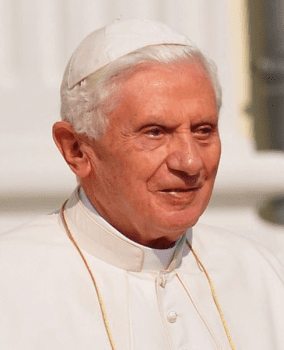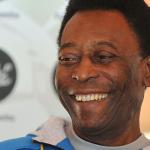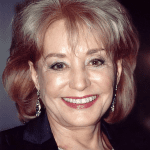
Pope Benedict XVI, whose original name is Joseph Alois Ratzinger, and former bishop of Rome and head of the Roman Catholic Church for eight years, died December 31, 2022 at 95 years old. “With sorrow I inform you that the Pope Emeritus, Benedict XVI, passed away today at 9:34 in the Mater Ecclesiae Monastery in the Vatican,” wrote Matteo Bruni, director of the Holy See Press Office. “Further information will be provided as soon as possible.”
Before his election as pope, Benedict led a distinguished career as a theologian and prefect of the Congregation for the Doctrine of the Faith. His papacy faced several challenges, including a decline in vocations and church attendance, divisive debates concerning the direction of the church, and the effects of the scandal beginning in the late 1990s surrounding the church’s handling of numerous cases of sexual abuse by priests. In 2013 he became the first pope to resign since Gregory XII in 1415.
Ratzinger’s father was a policeman, and his mother a hotel cook. The youngest of three children, Ratzinger was six years old when the Nazis took power in Germany in 1933; his parents, staunch Catholics, were hostile to the regime. Ratzinger entered the seminary in 1939. In 1941 he was compelled to join the Hitler Youth, and in 1943 he was drafted into the German military, serving in an antiaircraft unit in Bavaria before being sent to Hungary to set tank traps in 1945. He deserted in April of that year and was captured by American forces and held prisoner for a brief period.
After the war, Ratzinger continued his education in the seminary; he was ordained a priest in June 1951. In 1953 he was awarded a doctorate in theology at the University of Munich. After earning his teaching license in 1957, he taught dogma and theology at the higher school of philosophy and theology in Freising until 1959, later moving to the University of Bonn in 1959 and also teaching at universities in Münster until 1966 and, at the invitation of the theologian Hans Küng, Tübingen. In 1969 he moved to the University of Regensburg, where he later became vice president.
Ratzinger’s election as pope on the second day of the conclave was a surprise because of his status as a leading candidate; front-runners are rarely chosen, a fact reflected in the popular expression, “He who enters as a pope leaves as a cardinal.” His position with the cardinal electors was secured by his long service to John Paul and his devotion to his predecessor’s teachings and ideals. His sermon as part of the funeral proceedings for the pope also increased his stature.
Benedict XVI immediately took steps to continue John Paul’s dialogue with Judaism, Islam, and other Christian churches. Further, he declared that one of the goals of his papacy would be to revitalize the Catholic church in Europe. Benedict also indicated that he would maintain his predecessor’s conservative orthodoxy on sexuality, priestly celibacy, and ecclesiastical organization.
In February 2013, Benedict announced that he would resign at the end of that month, citing age and health concerns. His last public address in St. Peter’s Square drew a crowd of more than 50,000. On February 28, he formally resigned, taking the title of pope emeritus. Pope Benedict XVI was an honorable man who accomplished numerous things during his time as the pope.
Benedict’s remains will lie in St Peter’s Basilica, Rome, on January 2, 2023, to allow “the greeting of the faithful.” His funeral will then be held on Thursday, January 5, 2023 in St. Peter’s Square, presided over by his successor Pope Francis.


